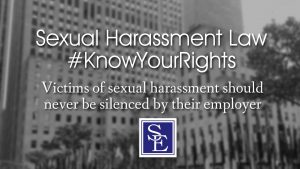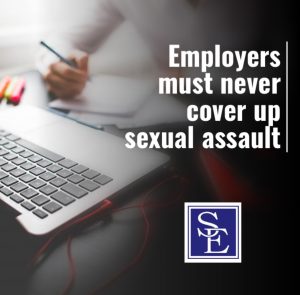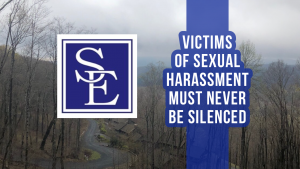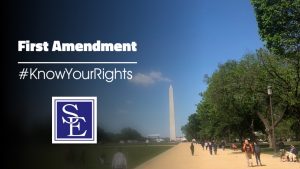In recent years, allegations of sexual harassment and sexual misconduct have abounded throughout the United States, and, particularly, in the Hollywood spotlight. In response to continuing and increasing numbers of allegations of sexual harassment and misconduct in the entertainment industry, the Hollywood Commission on Eliminating Sexual Harassment and Advancing Equality formed in 2017. The organization’s mission is “leading the entertainment industry to a strong and equitable future by defining and implementing best practices that eliminate sexual harassment and bias for all workers, especially marginalized communities, and by actively promoting a culture of accountability, respect and equality.”
 The Commission is founded and chaired by Anita Hill, a law professor who became an icon for the #MeToo and #TimesUp movements before they existed in 1991, when she accused nominated Supreme Court Justice Clarence Thomas of sexual harassment. While Hill did not publicly oppose his nomination, a confidential FBI interview with Hill was leaked to the press, prompting Senate hearings on Justice Thomas’ nomination to be reopened. Hill testified that Thomas, her supervisor at the Department of Education and the Equal Employment Opportunity Commission (EEOC), had sexually harassed her. In light of Thomas’ denial of her allegations, Hill agreed to take a polygraph test – the results were consistent with her testimony. In Thomas’ 2007 autobiography, My Grandfather’s Son, Thomas refers to Hill as his “most traitorous adversary”. Hill’s work advocating for women in the workplace has continued, as she now leads the charge against sexual harassment in the entertainment industry.
The Commission is founded and chaired by Anita Hill, a law professor who became an icon for the #MeToo and #TimesUp movements before they existed in 1991, when she accused nominated Supreme Court Justice Clarence Thomas of sexual harassment. While Hill did not publicly oppose his nomination, a confidential FBI interview with Hill was leaked to the press, prompting Senate hearings on Justice Thomas’ nomination to be reopened. Hill testified that Thomas, her supervisor at the Department of Education and the Equal Employment Opportunity Commission (EEOC), had sexually harassed her. In light of Thomas’ denial of her allegations, Hill agreed to take a polygraph test – the results were consistent with her testimony. In Thomas’ 2007 autobiography, My Grandfather’s Son, Thomas refers to Hill as his “most traitorous adversary”. Hill’s work advocating for women in the workplace has continued, as she now leads the charge against sexual harassment in the entertainment industry.
Hill stated, “The Me-Too movement sent shockwaves throughout the Hollywood community. We all know that there is work to be done to create safe and respectful workplaces in the industry. Our next step is to understand the state of the industry today, so that we can implement effective solutions.” Recently, the Commission joined with the Ethics & Compliance Initiative, a non-profit research organization focused on empowering organizations to build and sustain high-quality ethics and compliance programs and cultures of integrity, to develop a survey.
 New Jersey Employment Lawyers Blog
New Jersey Employment Lawyers Blog





